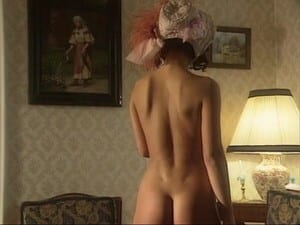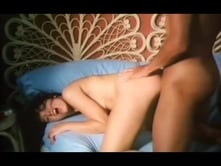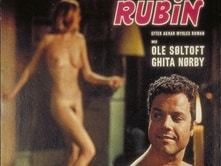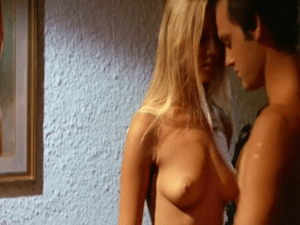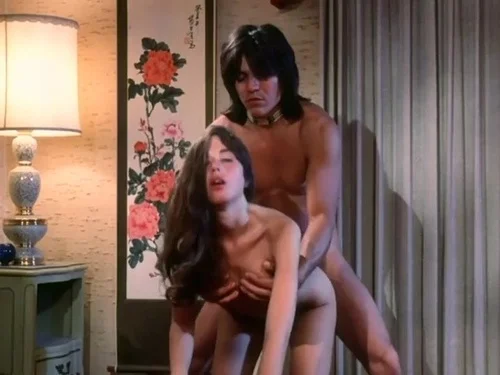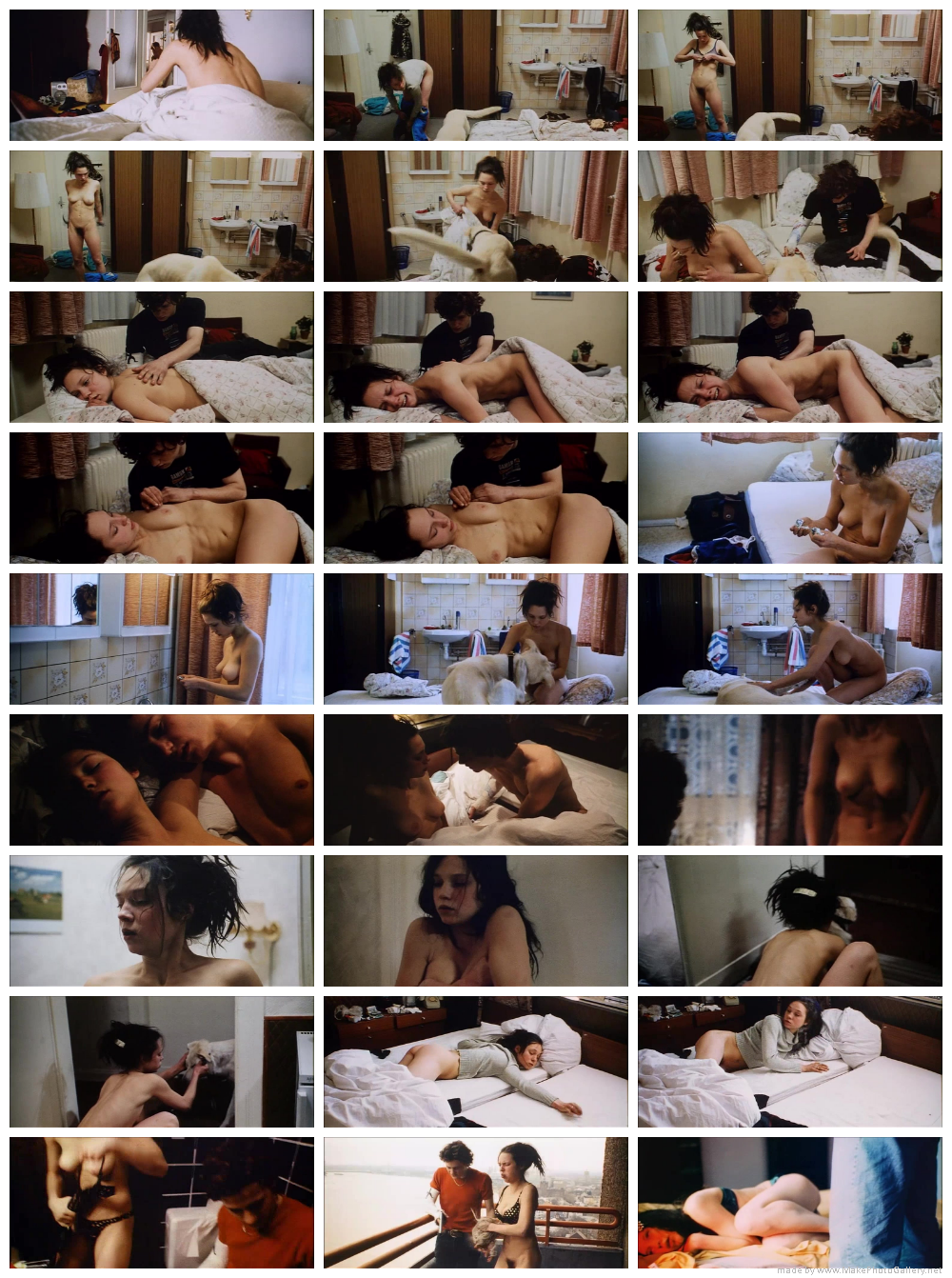
AKA Love, Money, Love
L’amour, l’argent, l’amour: a discourse, you should think, on the economy of love. Which it is and is not. It narrates and relates economy and love, but very soon moves outside any established economical orders. The story seems, at first sight, deeply rooted in cliché. We have a whore with the name, of all names, Marie and we have David. a young man with a right arm in plaster and no job. She asks him if he wants to sleep with her, but he has no money. From which results love, in a way. She takes him home, we see them awake naked, together, but he didn’t sleep with her. I will leave, he says, but he does not say where. Will you come, he asks, and she wouldn’t know why. But they go, they leave Berlin, in her car, they go somewhere, they drift along, you see streets and trees, faces and landscapes, cityscapes and lights in superimposition and it’s in these superimpositions (with the additional layer of music by The Velvet Underground and Calexico and other kinds of beautiful melancholy) that you realize that cliché is only to what you can, if you wish, reduce what you see. But then you have to ignore that you see so much more than cliché, or less.
More, less, economically speaking. But love in this film is a matter of strict economy (Marie living as a whore, earning their money) at the same time as it is a matter of an altogether different system that you cannot even call romanticism. Romanticism would confront two orders, the economical one and the economy of love, but this is not what happens – or only, perhaps, happens in the ending, wich can – but does not have to – be read as a utopian one. These two orders, on the contrary, feed on each other. David is in the bathroom when Marie sleeps with the men in order to feed their love. She hides the money, she launders it, it comes freshly from the money machine. There is circulation here but is an unruly, an unruled kind of circulation. It is an order of superimposition that defies traditional logic and any economy we know of and can be read only as the denial of this discourse, this logic and this economy.
It’s not psychology, either, that rules the movement of Marie and David, the relation of money and love. She kicks him out, she refuses to be touched by him, and he leaves. With no money. We see him in the streets, where he is robbed. He returns and she will not remember what she did. In Duisburg they establish an illegal brothel and they feed on the money she gets from sex with all sorts of men. What do you think of, when you sleep with them, asks David. The dog, she says. Kurt, the dog. He is always around. Not a part of any order, of love, of economy. We see him very early on, when Marie is cuddled close to him, sleeping. David, however, does not replace him. It’s not this kind of economy. The dog stays and is always around, he is in the bathroom with David, when Marie sleeps with the men. And he is not around when Marie and their brothel get in the way of a professional pimp who works destruction on Marie and David and drives them away.
They drift, once again. They go to Paris, we see a few picture postcards, coming alive and disappearing in the next moment. This, by the way, is the narrative and pictorial logic of this film: a drifting and disappearing, a superimposition that creates a mood and leaves it abruptly. L’amour, l’argent, l’amour is not a discourse on the economy of love and it is even less a discourse on love and society. Society does not have a place in the excessive and at the same time implosive dyad of David and Marie. Or, rather, the only connection to society is the money Marie produces by having sex with strangers and they both then spend and waste on what comes to their mind. This connection of money and society is not a real one (and the money, moreover, you could say, is not real either), as the realm of the real is not where they both move. What you have, in a sense, is signifiers that do not really mean (but what could that mean, now: really, mean) any more what you would expect them to mean: l’amour, l’argent, l’amour. Even Paris does not mean what it means: but more, and less. What you have, is an order (narrative, economical, pictorial) where the boundaries between surface and depth, the real and the imaginary are still intact, but what they separate somehow has inexplicably changed. Although, of course, there must be a way of saying: we need money, we are in love, or must there not.
So it’s an order, or even an economy of dissolution: white snowscapes, trees whirring, lights moving. But is there something like an order to dissolution, can there be? Let’s see how it ends (as if the ending could give a solution or resolution to dissolution, as if it could reestablish the order we yearn for). At sea, David jumps into the icy water (and we hear the sound, as we often do, far too loud, as if it had a meaning of its own). Before that they are stranded, we see ice, we see their hands on the ice. And then there is a fire, their car is burning, you expect it to explode. But it doesn’t. They find a home, a new home, in a holiday apartment, left and lonely in winter, they make a fire from nothing but alcohol in the sand. And while David sleeps Marie takes their last money from the dog’s collar and burns it. Here, of course, the story, the film has to end, in a dissolution that can be – but does not have to be – read as a utopian one. All money burnt, all passion spent. (Ekkehard Knörer)
